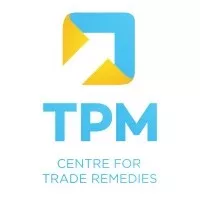The Government of India announced the much-anticipated Foreign Trade Policy 2023 earlier this month. The previous Foreign Trade Policy 2015-20 was extended till 31st March 2023, in light of the COVID-19 pandemic and the volatile geo-political situation. The new policy is dynamic with long term focus around four pillars: Incentive to Remission, Export Promotion through Collaboration, Ease of Doing Business, and Emerging Area.
The Ministry of Commerce and Industry, on 31st March 2023 announced the new Foreign Trade Policy 2023, which will be effective from 1st April 2023. Unlike the previous policy, the new policy will not be applicable for only a period of five years. As per the Ministry, the policy will be dynamic, updated as and when required, with no end date. This move has been made to accommodate the emerging needs of the time by allowing various sectors to give valuable feedback to the Ministry. A consultation mechanism will also be put in place to address the concerns of various stakeholders. Further, the Central Government has set a sector-specific target of achieving $1 trillion merchandise exports and 1$ trillion service exports by the end of 2030. One of the key highlights of the policy is internationalisation of the Indian currency by encouraging trade settlement in INR. This is a fundamental step in increasing the acceptance of INR in the global market and add to its resilience to external shocks. The key features of the policy are discussed in detail below.
Revisions in export incentive schemes
The policy focuses on ease of doing business for traders through paperless and automated approval system and reduced transaction cost. It has reduced the processing time for issuance of licenses under Advance Authorization scheme and Export Promotion Capital Goods scheme, revalidation of authorisations and extension of export obligation period from upto 31 days to 1 day. All applications for redemption of advance authorisation licence shall become paperless making the entire lifecycle of the authorization paperless. The policy has also reduced the application fee for MSMEs under advance authorisation and EPCG schemes. Even e-Certificate of Origin has been revamped with self-certification of CoOs and automatic approval.
The policy has also aimed at export promotion by rationalising the export performance threshold to enable more exporters to achieve higher status. For instance, the qualifying criterion for a five-star exporter has been reduced from $2 billion to $800 million. Further, merchanting trade which involves shipment of goods from one foreign country to another involving an Indian intermediary, without touching the Indian ports has also been allowed. However, it is subject to regulations set by the RBI in July 2022 and is not allowed for goods/items in the CITES and SCOMET lists.
Regional export promotion schemes
Four new Towns of Export Excellence (TEE), namely Faridabad, Mirzapur, Moradabad, and Varanasi, have been declared for apparel, handicraft, handmade carpets and handloom and handicrafts respectively. This will be in addition to 39 towns that are already approved. TEEs are industrial clusters that are recognized based on their export performance. Such recognition helps such industrial clusters in expanding to new markets, compete at a global level, receive financial assistance under Market Access Initiative Scheme, and eligibility for EPCG authorisation, among other benefits.
The policy has also taken efforts to take forward the Districts as Export Hubs Initiative by allowing collaboration between exporters as well as States and Districts, allowing for a wider participation by States and Districts in promoting exports. The regional Authorities of DGFT will also work with States and UTs to prepare District Export Action Plans and identify products / services in all districts. Further, the policy allows for creation of institutional mechanisms at State and District level to strategize exports. It will address infrastructure and logistic bottlenecks and help districts build export oriented eco-systems.
Amnesty scheme
Another important feature of the policy is the introduction of the Amnesty Scheme. The Scheme allows for one-time settlement of default in export obligation in case of EPCG and Advance Authorizations schemes. All pending cases for default in Export Obligation (EO) of authorizations can be settled by the authorization holder on payment of all customs duties exempted in proportion to unfulfilled Export Obligation. The maximum interest is capped at 100% of such duties exempted. However, no interest is payable on Additional Customs Duty and Special Additional Customs Duty payable. The scheme will only be applicable till 30th September 2023.
Focus on e-commerce sector
Another notable feature of the policy is the increased focus on the e-commerce sector. The policy outlines the roadmap for establishing e-commerce export hubs and offers a range of facilities to give the e-commerce sector a major boost. All the benefits of the policy will be extended to e-commerce with necessary enablement of IT systems in various government departments. Consultation with various ministries will be held to formulate guidelines to facilitate further exports under e-Commerce. The policy provides for designated hubs to be notified with warehousing facilities to help e-Commerce.
Other notable changes
The Central Government has recently shown a keen interest in green energy products such as the EV sector. Accordingly, under the new policy, Battery Electric Vehicles for all types will be eligible for a reduced Export Obligation requirement under the ECPG Scheme.
Steps have also been taken to give aid to the manufacturing sector. On March 17th, 2023, the Government of India had announced the setting up of 7 Prime Minister Mega Integrated Textile Region and Apparel (PM MITRA) Parks for the textile industry. These sites are a major step towards achieving India's vision of making India the global hub for textile manufacturing. Under the new policy, the PM MITRA parks will be eligible to claim benefits under Common Service Provider Scheme and EPCG Scheme. Further, in order to promote the dairy sector, it has been exempted from maintaining Average Export Obligation. Special Advance Authorisation Scheme has been extended to export of Apparel and Clothing sector. Moreover, self-Ratification Scheme for fixation of Input-Output Norms has been extended to 2 star and above status holders.
Lastly, the policy has streamlined the Special Chemicals, Organisms, Materials, Equipment and Technologies (SCOMET) licencing procedure through measures such as consolidation of policy for export of dual use items (SCOMET items) at one place and general authorizations for export of certain SCOMET items.
Overall, the Foreign Trade Policy 2023 brings a new opportunity for growth with several new facilities that allows ease of doing business and increased relaxation to the traders. It is already in contrast with the previous policies by removing the sunset clause with a mechanism for continuous improvement. The policy focuses on long term growth of the manufacturing and export sector, including the e-commerce sector. However, in order for the new policy to succeed, it is imperative, that the intended schemes are effectively implemented and proper assistance is offered to the businesses to adopt these changes.
The content of this article is intended to provide a general guide to the subject matter. Specialist advice should be sought about your specific circumstances.



